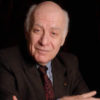Arendt, Eichmann and the Banalization of Blame
REVIEWS, 17 Feb 2020
Michael Brenner | HuffPost – TRANSCEND Media Service
24 Aug 2013 – The appearance of the von Trotta film on Hannah Arendt recalls the great Eichmann affair of the early 1960s. It has more contemporary meaning than I might expect.
Evil – its sources and manifestations – is not of much interest these days. We prefer to converse about the soft emotions and attendant soft sins or misbehavior associated with narcissism, status obsessions, avarice, sex and celebrity. To the extent that we use the term, we apply it to others who have victimized us: al-Qaeda, Saddam, the Ayatollahs. North Korea. Evil was very much on people’s minds, though, in the post-war era when the horrors of Nazism were still living memory. The capture and trial of Adolf Eichmann in 1960-1962 riveted the world’s attention as nothing had since the Nazi chieftains had been brought to the bar of justice at Nuremburg. The seeming incongruity between the monstrosity of the crimes and the tepid nature of the man in the dock was arresting. Eichmann was not a madman like Hitler; nor even the arrogant bully like Goering and his lot. He was ‘normal’ in clinical psychological terms.
Hannah Arendt, who originated the term “banality of evil” in her provocative writings, was not interested in explaining Eichmann’s blandness per se. She had more profound thoughts to convey. He was a symbol of something much deeper. Her forcefully argued conclusions that ordinary people can commit horrific crimes created a furor – a blazing fire of argument and recrimination whose embers smoldered for decades.
Arendt slighted the emotional difference between the actual commission of an atrocity and the process of deciding upon and administering a program of atrocity. The temperament to do the latter, as Eichmann did, need not be as exceptional as that required to perform the act itself. The slaughter by the followers of Genghis Khan or Timur was done up close – there were no distant bureaucrats involved. But this point was of little interest to her. The key determination was that the perpetrators could be banal even if the evil done was anything but prosaic. The accusation of her critics that Arendt reduced the criminality of people such as Eichmann to the phenomenon of obedient personalities following orders is unfair. She certainly recognized that there is individual choice involved. Most crucial was the choice of an ideology whose philosophical validity confirmed the rightness of the behavior that follows. Nazism was an evil ideology whose devotees were set on a path leading inexorably to the commission of evil deeds – tangible or administrative.
Arendt wrote in The Origins of Totalitarianism:
“Once ideologies claim to total validity is taken literally they become the nuclei of logical systems in which, as in the systems of paranoiacs, everything follows comprehensibly and even compulsorily once the first premise is accepted. The insanity of such systems lies not only in their first premise but in the very logicality with which they are constructed.”
Eichmann was in thrall to an ideology that suppressed all humane norms of conduct. In his case, it was not just a question of complying with the dictates of the totalitarian regime since he had volunteered for the job he did and exhibited initiative in carrying it out.
Eichmann, in Arendt’s view, should be condemned not because he was intrinsically evil. Rather, his main culpability lay in the failure to use his rational intelligence to recognize the implications of binding himself to a diabolical ideology. She saw rational thinking as the distinctive human faculty that can remind us of human dignity and to break the servile logic that leads us to behave abominably. Did Eichmann have that intelligent capability? This is the nub of the moral issue that preoccupied Arendt. Skeptical thinking, to her mind, is not a native trait of all humans – nor can we be instructed in how to do it. Only exceptional people have that attribute, and we depend on them to guide our behavior by exemplifying it. In Arendt’s words:
We learn thinking only through experience, when we are inspired by those whose thinking enthralls us—when we encounter someone who stands apart from the crowd. This inability to think created the possibility for many ordinary men to commit to commit evil deeds on a gigantic scale, the like of which had never been seen before. The manifestation of the wind of thought is not knowledge but the ability to tell right from wrong, the beautiful from the ugly….
This paean to the superior thinking mind as the moral beacon for humankind is very much a reflection of the elitist orientation of German philosophy – the tradition that had formed Arendt’s own personal intellect and provided the bearings for her self-conscious navigation of 20th century public ethics. From this perspective, it is unclear whether an Eichmann can be held ethically accountable for the crimes with which he is associated. Did he have the mental proclivity to discern the practical meaning of Nazism? Was that first fatal step of ideological commitment the determinant of his moral destiny? Where were the superior intellects who could have shed moral light on where the path would lead? In their absence, was the only moral choice Eichmann faced between passive disengagement and joining the Nazis’ mindless minions?
Arendt thereby painted herself into a logical bind be affirming the intersecting propositions of
- rationality being the sole method for acquiring moral perspective, and
- restricting its availability to a few select persons.
The “rational fallacy” at the core of German philosophy is not just to overstate the standards of reasoning necessary to behave with humane awareness. The equally serious error is to assume that humans are basically ‘animals’ who by natural instinct will act rapaciously unless guided by high-grade rationality. This is false. It is in our nature to bond with other members of our family, our tribe and even our species as much as it is to compete ruthlessly. Even the lower mammals exhibit this propensity.
 An ethic of universal humanism as found in the traditions of all great civilizations would not have developed, been formalized and achieved a measure of success if it had run counter to the very essence of our being. Humans can and do kill – but they are not born “killers” and certainly not of the Nazi type. Humans can and do commit acts that harm others and harm society – but they are not by nature sociopaths whose destructive impulses are restrained by the blessings of philosophy and philosophers.
An ethic of universal humanism as found in the traditions of all great civilizations would not have developed, been formalized and achieved a measure of success if it had run counter to the very essence of our being. Humans can and do kill – but they are not born “killers” and certainly not of the Nazi type. Humans can and do commit acts that harm others and harm society – but they are not by nature sociopaths whose destructive impulses are restrained by the blessings of philosophy and philosophers.
Arendt’s second fundamental error was to overplay the importance of an intellectual elite. Moreover, in so doing she divorced intellect from other traits of personality. This, too, is an expression of her Germanic philosophical bias. And this is something she should have discerned from her close association with Heidegger – Heidegger her mentor, her muse, her lover. He remained an intellectual companion (with a brief hiatus) until his death despite his collaboration with the Nazi regime.
Rationality as supposedly characterized by refined thinkers is greatly overrated as a surety against lapses into social primitivism. Most people, under most circumstances, are inclined to behave in a socially positive manner without self-conscious calculations of rights and wrongs. Indeed, any society whose members in large numbers begin to question the whys and wherefors of respecting rules or behaving with human decency is already in trouble. Some of them, at least, will reach conclusions that are not at all logical in terms of their own and the collectivity’s interests.
Martin Heidegger was one of the most prominent and influential philosophers of the 20th century. He also was a despicable man who betrayed his calling and revealed his own moral deformity in supporting the Nazis. A self-absorbed egoist who possessed little human empathy in both his philosophy and personal life, he was at the core a weakling. Renowned for his forceful personality and assertive manner in the academy, he meekly kow-towed to the Nazis. His abstruse metaphysics vaunted him as a transcendent figure whose status allowed him to mediate the world on his terms. He thereby gained the affection of brilliant women students; he thereby retained his position as Rector of Freiburg University by mouthing words of praise for National Socialism, identifying with some of its nebulous ideals and participating in the purge of Jewish colleagues. He broke all connection to Edmund Husserl who had been an intellectual inspiration and professional mentor.
That brutal rupture is said to have hastened Husserl’s demise – a connection acknowledged by Arendt and then recanted. In his infamous 1933 address upon accepting the position of Rector, Heidegger spoke of Nazism’s “inner truth and greatness,” declaring that “the Führer, and he alone, is the present and future of German reality, and its law.” He often wore the Nazi brown shirt in his university office. Evidently, he sought official recognition as Germany’s paramount philosopher. Elements in the SS blocked that bid on the grounds that some of Heidegger’s credentials were suspect. That rebuff led him to quit the position of Rector; he continued to pay punctually his dues as a Nazi Party member right through April 1945. Heidegger did assist Elisabeth Blochmann, a half-Jewish student who succeeded Arendt as his mistress, to leave Germany before the war. He never admitted moral error or made apologies.
In 1949, Heidegger compared the extermination camps to the industrialization of agriculture. Belatedly, he did often lame “explanations” that feebly rationalized his behavior. They were accompanied by outright lies. In this, he can be viewed as a precursor of today’s public persons who never do any wrong that cannot be excused or sloughed off. His philosophy, to the extent that its prolix ideas are decipherable, also was a harbinger in pointing to deconstruction, phenomenology and sundry other philosophical fads. Their common denominator is the dilution of social and cultural standards and constraints on individual behavior. They promote a radical philosophy of subjectivism.
That, in turn, has provided the intellectual cover for the post-modern world’s shallow but not innocuous nihilism that justifies and encourages garden variety egoists to indulge their impulses while eroding any sense of obligation or responsibility. The institutionalization of juvenilia.
Heidegger shadows the public performances of Bush & Blair & Obama & the Clintons, of Robert Rubin and Jaime Dimon, of the European Troika and Merkel, and many more lesser lights. This is the democratization – and banalization – of the obermensch. Being liberated means never having to say “I’m sorry.” Ultimate freedom is never even asking yourself whether you should.
For Heidegger, as for many 20th century philosophers, the ultimate reality is ideational – not natural, or human. That discrepancy was Hannah Arendt’s point of reference for her study of political and human evil that is The Banality of Evil. The great irony is that he was the quintessential rational philosopher whose example, Arendt was to proclaim, is the one firm basis for avoiding the slide into the mire of ideologically driven evil. This thinker par excellence chose instead a course that made him an accessory to mass murder. If Heidegger had not spent a lifetime immersed in the metaphysics of “being” and “essence,” is it probable that he would have defied all reasonableness and humanity in associating himself willfully with Nazism? – that decency, honesty and conscience would flee him?
German philosophers, it is said, dive deeper than anyone else and come up muddier. The depth of Heidegger’s thought remains in dispute. The murkiness is unmistakable. Did his philosophy also soil his sense of morality or was the causal relationship the other way around? Or were they unrelated? One thing we do know, the ripples of the tradition he represented – as much as the moral consequences of his descent – outlived him. Hannah Arendt was herself a brilliant, deeply engaged thinker who became a public intellectual. She probed the nature and meaning of evil. Arendt reconciled with Heidegger soon after the war’s end and corresponded with him until his death thirty years later.
________________________________________________
 Michael Brenner is professor of international affairs at the University of Pittsburgh; a senior fellow at the Center for Transatlantic Relations, SAIS-Johns Hopkins (Washington, D.C.), contributor to research and consulting projects on Euro-American security and economic issues. Publishes and teaches in the fields of American foreign policy, Euro-American relations, and the European Union. mbren@pitt.edu – More…
Michael Brenner is professor of international affairs at the University of Pittsburgh; a senior fellow at the Center for Transatlantic Relations, SAIS-Johns Hopkins (Washington, D.C.), contributor to research and consulting projects on Euro-American security and economic issues. Publishes and teaches in the fields of American foreign policy, Euro-American relations, and the European Union. mbren@pitt.edu – More…
Tags: History, Literature, Philosophy, Reviews
DISCLAIMER: The statements, views and opinions expressed in pieces republished here are solely those of the authors and do not necessarily represent those of TMS. In accordance with title 17 U.S.C. section 107, this material is distributed without profit to those who have expressed a prior interest in receiving the included information for research and educational purposes. TMS has no affiliation whatsoever with the originator of this article nor is TMS endorsed or sponsored by the originator. “GO TO ORIGINAL” links are provided as a convenience to our readers and allow for verification of authenticity. However, as originating pages are often updated by their originating host sites, the versions posted may not match the versions our readers view when clicking the “GO TO ORIGINAL” links. This site contains copyrighted material the use of which has not always been specifically authorized by the copyright owner. We are making such material available in our efforts to advance understanding of environmental, political, human rights, economic, democracy, scientific, and social justice issues, etc. We believe this constitutes a ‘fair use’ of any such copyrighted material as provided for in section 107 of the US Copyright Law. In accordance with Title 17 U.S.C. Section 107, the material on this site is distributed without profit to those who have expressed a prior interest in receiving the included information for research and educational purposes. For more information go to: http://www.law.cornell.edu/uscode/17/107.shtml. If you wish to use copyrighted material from this site for purposes of your own that go beyond ‘fair use’, you must obtain permission from the copyright owner.
